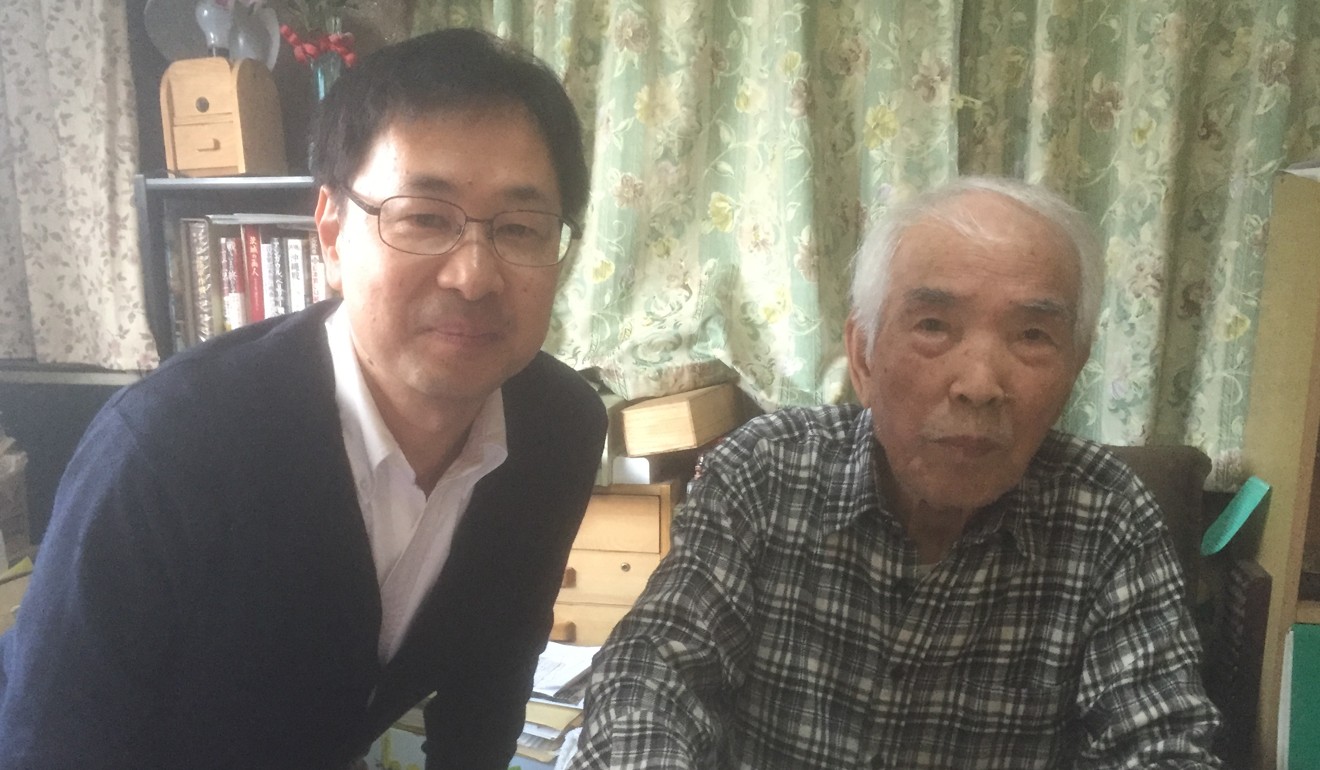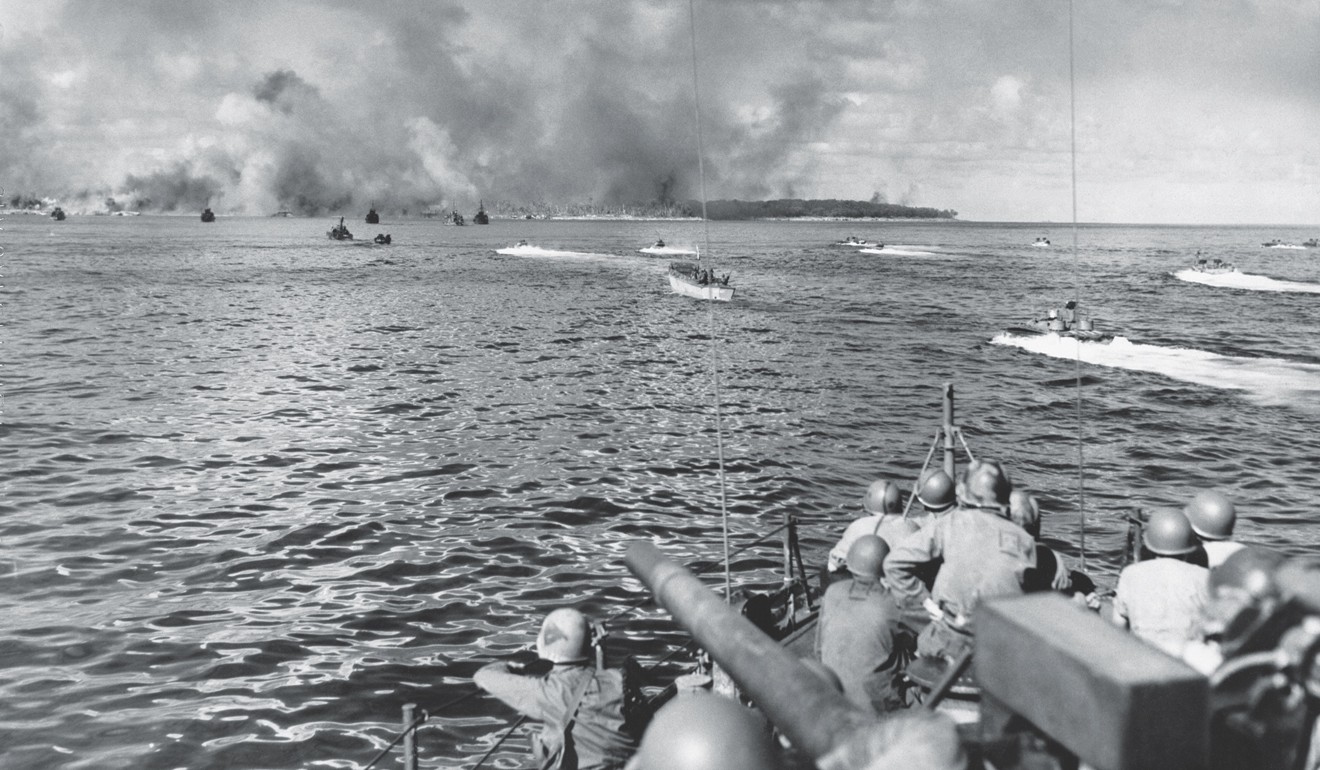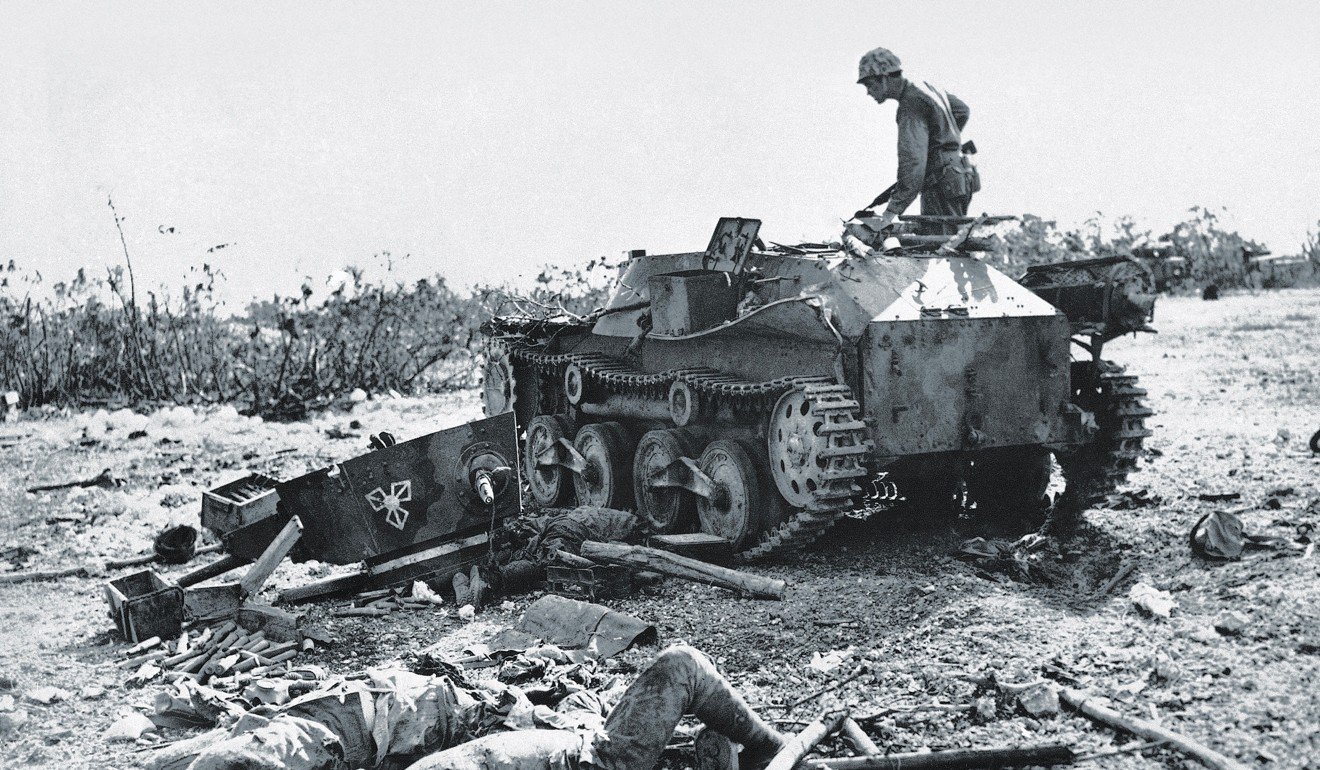
Last Japanese soldier to survive World War II Battle of Peleliu’s final words of warning
- Keiji Nagai, who died last month, endured one of the bitterest battles between US Marines and the Imperial Japanese Army of the entire war
- In life, he mostly avoided talking about his experiences – but when he did, his interviewer found something that changed him: an appeal for peace
When Keiji Nagai spoke of the horrors he had witnessed, a shadow fell over his eyes. His interviewer, Kentaro Saeki, said it was like the second world war veteran was seeing it all over again: the fighting, the bloodshed, the deaths of his friends.
“I interviewed him for a television programme on the day that [Japan’s then] emperor and empress travelled to Peleliu to pay their respects to the dead,” Saeki said.

It would be the first of 10 or so meetings between the pair – meetings that coloured the seasoned journalist’s understanding of a catastrophic war that the old soldier had witnessed first hand.
“I don’t think he was reluctant to speak about the war, though he did sometimes have difficulty explaining military terms from that time in ways that I could understand,” Saeki said. “But when he started talking about the actual fighting, he became quite intense.”
It would be another six months before a massive US fleet appeared on the horizon and battle commenced.

“The US ships bombarded the island before the landings and [Nagai] said it was terrible,” Saeki said. “I remember looking at him as he was speaking and I saw his eyes become darker … it was as if I was being swallowed into those eyes.”
After 73 days of bitter fighting, the battle was over with the commander of the Japanese forces having performed ritual suicide. But Nagai and his fellow holdouts refused to surrender, spending the next two years or so hiding in a network of caves that honeycombed the interior of the island and stealing from US military stores at night to survive.
While recounting that time, and especially the experience of finding the bodies of fallen comrades, Nagai would sometimes stumble over his words, speak more slowly or stand up to take a book about the battle from a shelf, Saeki said. Perhaps it was the old soldier’s way of regaining his composure, because Saeki said he never saw him shed a tear.

Though the surviving Japanese held out hope for their fatherland’s eventual victory, these dreams were dashed in 1947 when one of their number found a news magazine on a beach frequented by American soldiers. Another, who knew some English, translated the caption beneath a photo showing a group of Japanese politicians and military officers signing a document on the deck of a warship, surrounded by US military leaders.
It was only then that the holdouts realised they had been defeated, Saeki said, and the last of them began to emerge from their caves.
“Nagai didn’t want anyone to use the words ‘surrender’ or ‘give up’ when they went to the Americans,” Saeki said. “He had been in the military and he still had pride in his heart.”
When he was eventually allowed to return home to Ibaraki prefecture, Nagai married and in time began working for a confectionery company. For many years, he avoided talking about his experiences of war until he was latterly identified as the last Japanese survivor of the Battle of Peleliu.
And having witnessed some of the worst that war could offer, Nagai appeared to have become a champion for peace.
On being asked, he told Saeki there was “no need to change” Japan’s pacifist constitution – something that is being pushed by Prime Minister Shinzo Abe and other conservatives in a bid to “normalise” the country’s armed forces.
“He had gone through the hardest times imaginable and I think that it was only natural that he felt that way,” Saeki said. “He said we should never again resort to war. He hated war and I think that was his legacy.”

Listening to Nagai’s stories also changed something in Saeki, he said, and made him “realise just how important it is that whatever difficulties my country faces, we can never again resort to war to solve those problems”.
“We cannot do anything that might lead to a repeat of those years,” Saeki said. “I’m a journalist and I don’t know what I can do to achieve that, but it’s something that we have to work hard to ensure.”
Saeki was later transferred to NHK’s Tokyo headquarters but would correspond with Nagai via letter, the last of which he received in December 2017.
In it, Nagai counselled Saeki to be good to his wife before signing off “see you again”. He never did.

